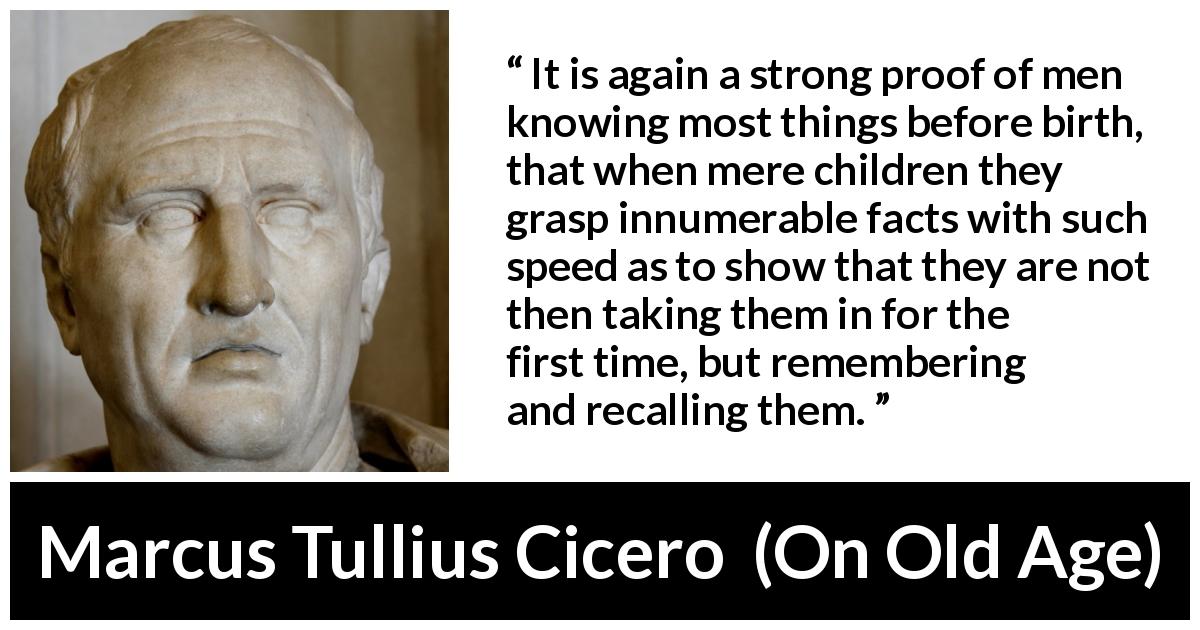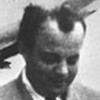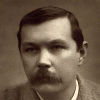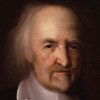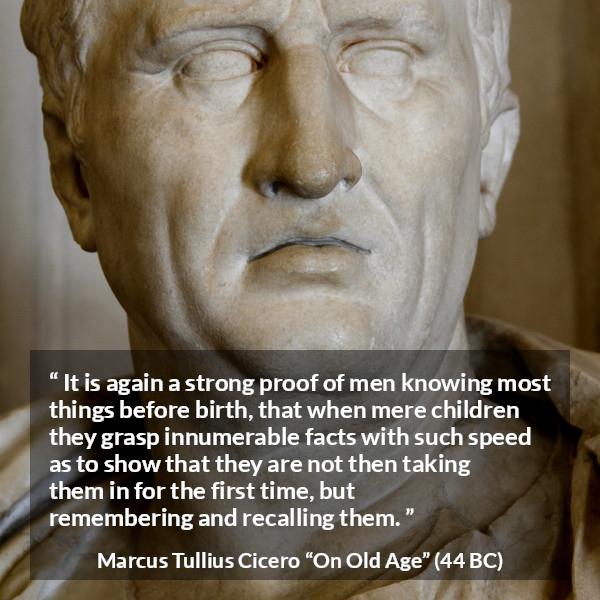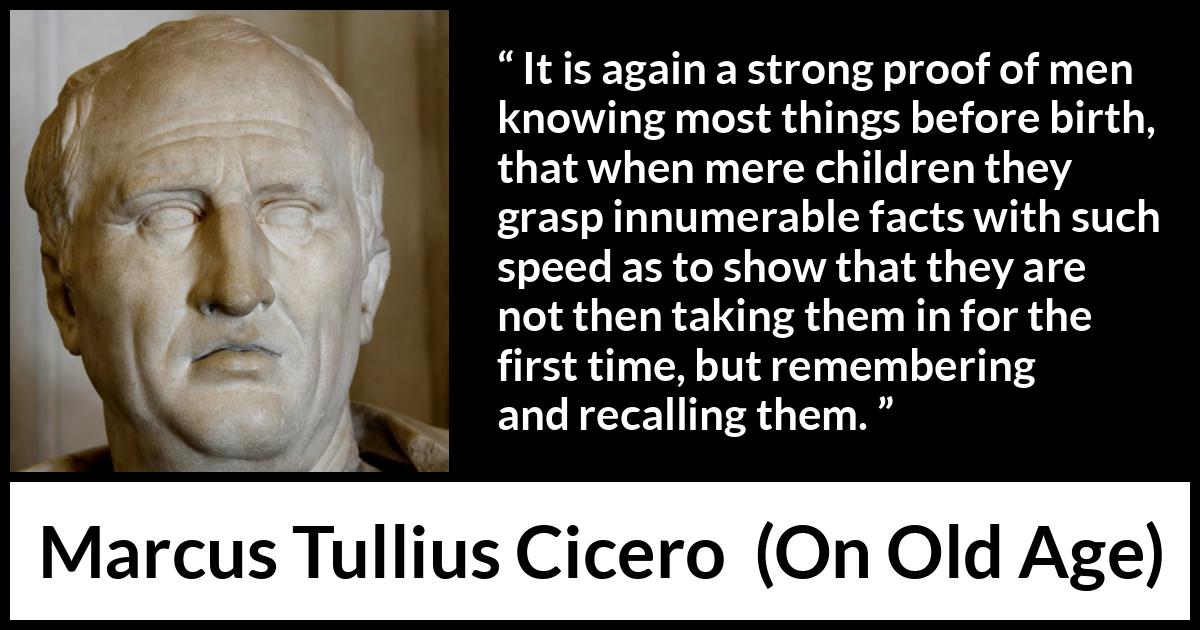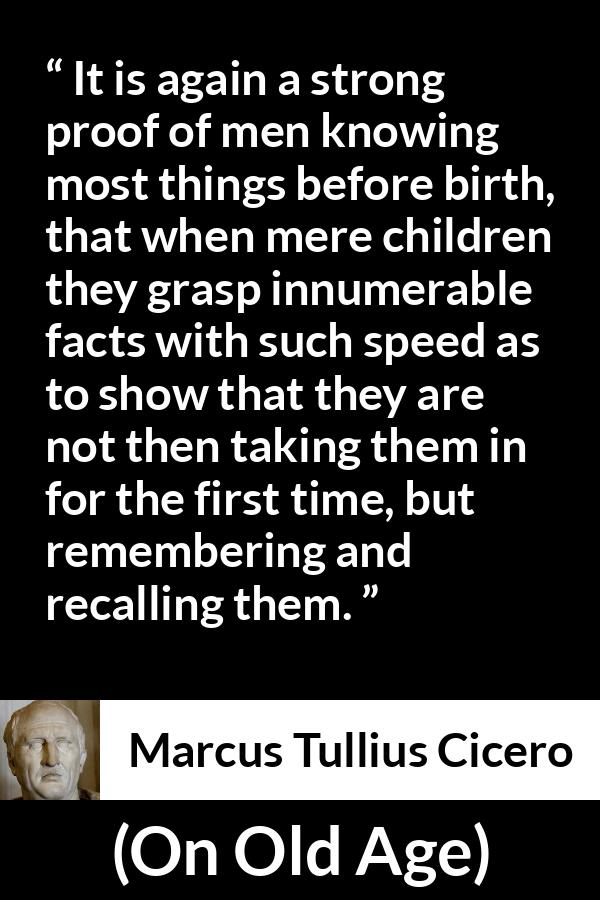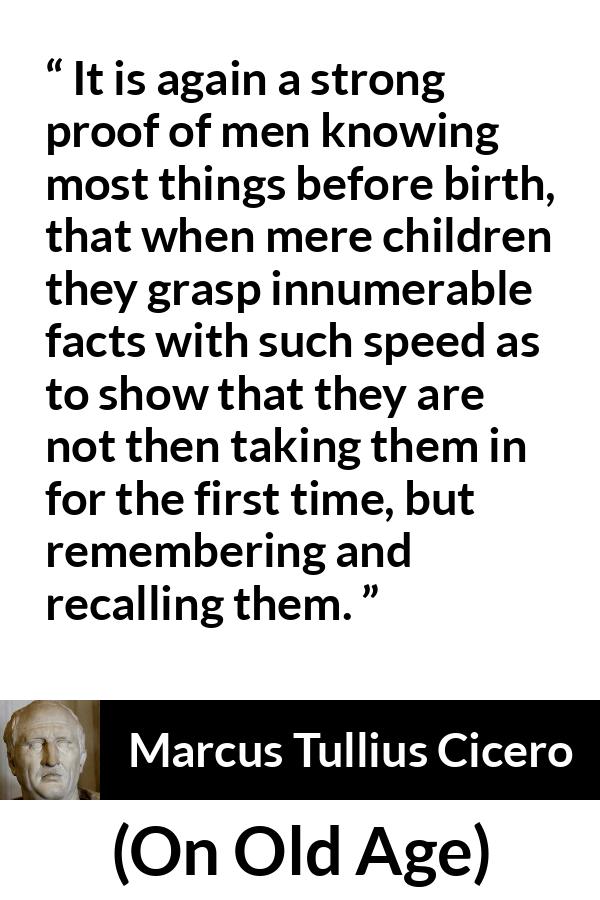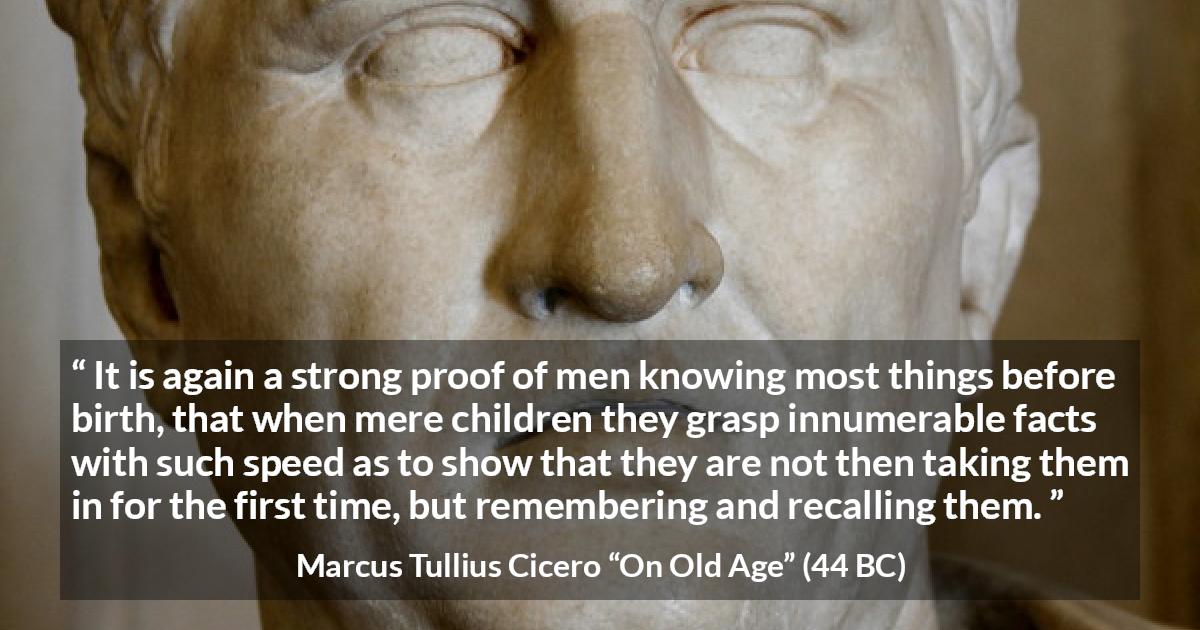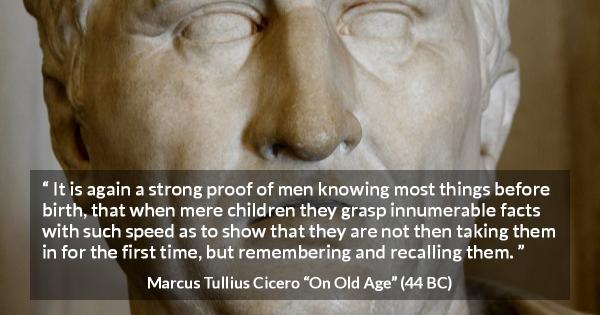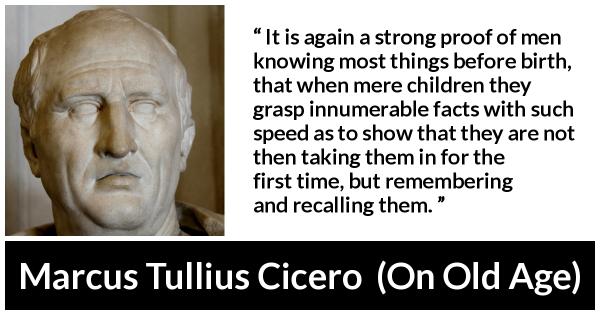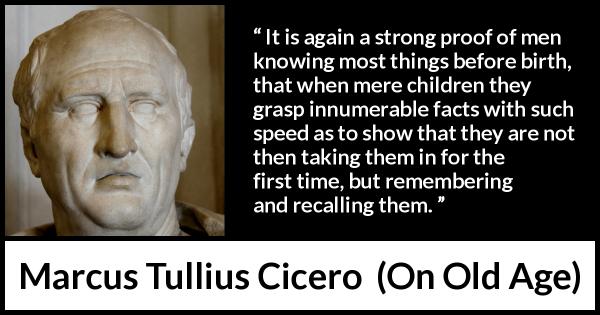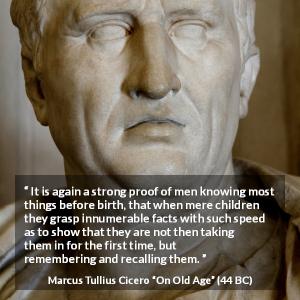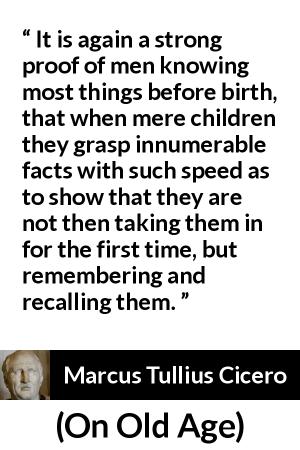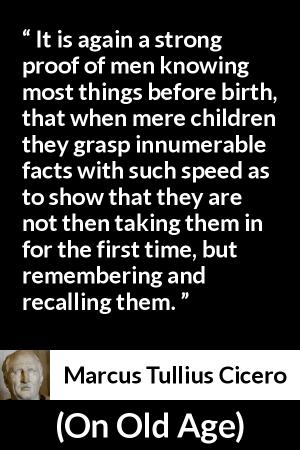“ It is again a strong proof of men knowing most things before birth, that when mere children they grasp innumerable facts with such speed as to show that they are not then taking them in for the first time, but remembering and recalling them. ”
Marcus Tullius Cicero, On Old Age (44 BC). copy citation
| Author | Marcus Tullius Cicero |
|---|---|
| Source | On Old Age |
| Topic | knowledge children remembrance |
| Date | 44 BC |
| Language | English |
| Reference | |
| Note | Translated by E. S. Shuckburgh |
| Weblink | http://www.gutenberg.org/files/2808/2808-h/2808-h.htm |
Context
“And since the soul is always in motion and yet has no external source of motion, for it is self-moved, I conclude that it will also have no end to its motion, because it is not likely ever to abandon itself. Again, since the nature of the soul is not composite, nor has in it any admixture that is not homogeneous and similar, I conclude that it is indivisible, and, if indivisible, that it cannot perish. It is again a strong proof of men knowing most things before birth, that when mere children they grasp innumerable facts with such speed as to show that they are not then taking them in for the first time, but remembering and recalling them. This is roughly Plato's argument.
22. Once more in Xenophon we have the elder Cyrus on his deathbed speaking as follows:—
"Do not suppose, my dearest sons, that when I have left you I shall be nowhere and no one.” source
22. Once more in Xenophon we have the elder Cyrus on his deathbed speaking as follows:—
"Do not suppose, my dearest sons, that when I have left you I shall be nowhere and no one.” source
